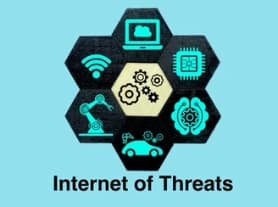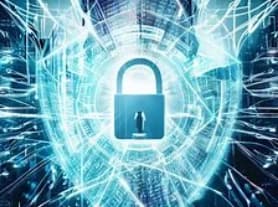The rising threats of IoT devices to election, healthcare, and energy infrastructure
Internet of Things (IoT) devices such as fitness trackers and home security cameras are growing in popularity, but many people don’t realize that these devices can also be used to attack critical infrastructure. In 2017, a group of hackers used IoT devices to launch a massive attack on the internet infrastructure provider Dyn, and they were only able to do this because they were able to exploit devices that were using default passwords.
Defense-in-Depth: A Multi-Layered Cybersecurity Approach
As the world becomes increasingly digitized, the risk of cyberattacks against businesses, governments, and individuals alike has increased dramatically. Hackers can gain access to sensitive data, steal identities or financial information, or damage computer networks and critical infrastructure.
An Overview of the 16 Critical Infrastructure Sectors: Keeping Our Nation Secure
Critical infrastructure refers to those vital systems, networks, and assets whose incapacitation or destruction would have a debilitating effect on national security, the economy, public health, or any combination thereof. In the U.S., the Department of Homeland Security (DHS) has demarcated 16 specific critical infrastructure sectors. These sectors serve as the pillars that support the nation's day-to-day operations and its citizens' way of life.
Unveiling My Black Hat 2023 Presentations
I am delighted to announce the titles of my upcoming presentations for Black Hat 2023, both scheduled for August 10th. Here's a glimpse into what you can expect.
Join Me at Austin's Startup Week: A Deep Dive into Insider Threats and Neural Networking
Austin Startup Week, since its inception in 2011, has always been a vibrant tapestry of Austin's entrepreneurial spirit. A unique confluence of entrepreneurs, local leaders, and enthusiasts, it offers a rich platform to connect, collaborate, and grow. This year marks the 13th iteration of this celebrated event, which will span from November 6-10, 2023. From enlightening sessions, hands-on workshops, to dynamic startup showcases and networking mixers, Austin Startup Week promises to be an engaging experience. To all those who celebrate the spirit of innovation and entrepreneurship, I wholeheartedly encourage you to register and be a part of this distinctive celebration of Austin's diverse community of trailblazers.
Cyberspace Solarium Commission Report
In 2019, I was honored to be asked to participate in the Cyberspace Solarium Commission (CSC), a significant initiative established in the United States as part of the National Defense Authorization Act for Fiscal Year 2019. The Commission released its report in 2020, which included a wide range of recommendations for both legislative and executive actions.
Announcing My Fellowship with Mission Critical
I am excited to announce that I have become a fellow with Mission Critical, an organization dedicated to securing the U.S.'s critical infrastructure sectors. This role complements my ongoing work at ICIT, contributing to enhancing our nation's security and resilience.
"Do You Have a Safe Word Yet?" A Call to Arms Against Deep Fake Voice Attacks
In the digital age, we've seen a steady evolution of threats, but none perhaps as chilling as the rise of deep fake voices and videos. Malicious actors can, with relative ease, use voice technology to mimic someone's voice and use it in criminally exploitative ways—from convincing others to take potentially dangerous actions, to making fraudulent payments, or opening gaps in security. This is a threat too severe to overlook. So, how do we safeguard ourselves in a landscape where our ears can't always be trusted?
Insider Threats and AI: A Panel Recap from Austin's Startup Week
Today, I joined a panel at Austin Startup Week to discuss "How Unsupervised Neural Networking Roots Out Insider Threats." The conversation took place at the Capital Factory here in Austin, Texas—an ideal setting for a forward-thinking cybersecurity discussion.
Creating ERIN: The Rise of a Fully Interactive Virtual Receptionist
Join me on a nostalgic journey recapping the pioneering work my team and I did in 2015-2016, as we created ERIN, a groundbreaking virtual receptionist that captured public and media attention. Dive into the details of her creation, the challenges we overcame, and the successes we celebrated.




















